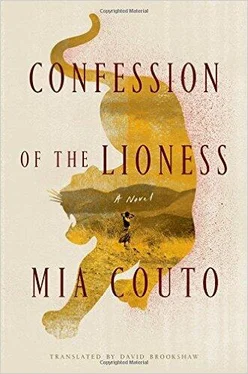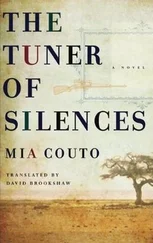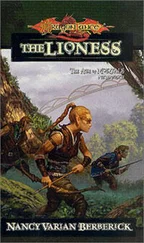When the story was finished, my grandfather remained with his eyes closed. Then, he kissed my hands, saying: You, my granddaughter, are my goddess.
* * *
Adjiru’s constant presence at the mission gave me peace of mind, but threw into relief other absences. One time, I managed to overcome my fear:
Grandfather, tell me something: Are my parents saddened by me?
It’s just that the war is now taking up all our time. That’s why they don’t visit you. Everyone’s gone, and I and one or two others of no importance are the only ones left.
Aren’t you scared of being killed?
I’m so skinny that any bullet would miss me.
In truth, the sound of gunfire and explosions was increasing in the vicinity. Father Amoroso was called to conduct funerals ever more frequently, and at an ever greater distance. The inhabitants of Kulumani, including my parents, had moved to Palma months ago. Only Adjiru and his five brothers remained. They were convinced that they would be spared because they were elderly. But it wasn’t their age that saved them. They paid for their security. What they hunted was given to the soldiers of both armies.
That’s how things are, Mariamar , Adjiru recalled. In war, the poor are killed. In peace, the poor die.
* * *
One time, the Kapitamoro clan brought the eldest of the brothers to the church. His name was Vicente and he was wounded, shedding blood, his weakened feet dragging along the ground. Held up by his brothers’ arms, Vicente entered the holy sanctuary, unable to see anything in front of him through the prevailing shadows. He was blind. Yet it was he who showed his brothers the way. He knew the church like the palm of his hand. He had built those walls that now offered him shelter.
They sat him on the long wooden bench, supporting him shoulder to shoulder. Adjiru walked over to the priest and addressed him in a tone that mingled entreaty with threats:
This is the house of God, no one can die here. Do you hear me, Father Amoroso?
Let us pray, my son, let us pray.
The Kapitamoros yelled their prayers, and for sure no one had ever prayed with such aplomb before an altar. The booming voices of those demented brothers were intimidating: The gods had better watch out in case there wasn’t a miracle.
At first we could still hear our wounded relative babbling. What he was asking for, however, was the exact opposite of what his brothers wanted: He was praying for his Creator to allow him to depart, tired as he was of suffering. What then happened was proof that God doesn’t listen to those who shout loudest. Vicente Kapitamoro breathed his last without anyone noticing, his devoted fingers intertwined, his head slumped over his knees.
This incident proved a blow to Adjiru’s faith. From then on, he no longer went to mass. He stopped at the entrance to the church and asked his brothers to go in and pray in his name. Let them pretend they were him, let them borrow his name and his soul, that’s what he asked.
We’re alike. God won’t notice.
Unhappy, Father Amoroso reflected on the situation. He was disappointed by Kapitamoro’s attitude. However, he couldn’t confront such an eminent figure in the village. He waited for time to bring him inspiration. And time brought peace. Gradually Kulumani resumed the life it seemed to have lost forever. The wounds of history healed, and broken affiliations were reforged. The missionary thought it would be good to make use of the wave of reconciliations and requested Adjiru to meet him in the churchyard so as to remind him of his sacred duties.
Tomorrow I shall say a mass for your brother Vicente’s soul.
My dear sir, with all due respect, I shall not go.
And why won’t you come?
I’ll go to the matanga, our own ceremony for the dead.
And how will you explain yourself before God?
I’ll explain myself before Nungu, our God. With all due respect.
For years he had been criticized for frequenting the mission and converting to Catholicism, and, in the words of Kulumani folk, for having become a vamissau . In his own defense, he had argued: The others have the drum dance, I have the Bible. In the beginning, Adjiru still had a reason for his apparent conversion: to entrust the drums to the hands of God, and make the sacred book dance. That was why he taught me the art of dancing. Now, however, any purpose had long been abandoned.
Appealing to divine inspiration, Amoroso picked off a long rosary of arguments. The hand of God, he said, is a sightless guide. What this hand seeks is that we should be the masters of our journey. But journeys last as long as a star. By the time we see them, they have long ceased to exist.
All this is just words. What hand of God sends us on a journey to war, Mr. Amoroso?
Why do you call me Mister? Why don’t you address me as Father anymore?
You live shut away in your own world. Look what’s happening out there. And you’ll see that sometimes the gods die in wars …
How can you dare to say such a thing in the house of God?
I’m the one who built this church. I and my brothers. We started building it when we were still slaves.
He paused, measured his words, and in the end burst out, without any rancor, as if he were among friends:
At the time, we should have thrown the church into the river.
Holy Mother of God!
Standing as tall as he could, his voice trembling with emotion, everything in the priest contrasted with my grandfather’s tranquillity:
Do you want to see a miracle, Adjiru? Well, look at your granddaughter , and turning to me, he ordered, Show him, Mariamar, show him …
I got up and walked toward Adjiru. My legs swayed, but my steps were firm. Grandfather didn’t seem surprised.
Mariamar can walk again, I’m very happy. But let me ask you this: Have you taught her to kick, Reverend Father?
Kick? Is that something one teaches a girl?
Of course, Father. Precisely because she’s a girl, she ought to learn to punch, bite, kick …
Those aren’t the words of a believer. Here, we teach people to love one’s nearest and dearest.
It’s from one’s nearest and dearest that we most need to defend ourselves.
He got up and walked around me, his hands tapping his chest as if it were a drum, and he began to wave his arms. Grandfather knew that we were forbidden to dance by the priest.
Can you still dance, Mariamar? Now, then, show me you still know how to kick up some dust.
Amoroso’s watchful gaze didn’t allow me to sway my hips. I tried one or two clumsy steps around the room and, without waiting, Grandfather raised his arm to put an end to the performance. In a dry tone, he ordered:
Go and pack your bag, because I’m coming to fetch you tomorrow.
The following day, he returned with a small wheelbarrow. I reminded him that I could walk on my own two feet, but he pointed uncompromisingly at the rough-and-ready vehicle and asked:
Do you know what day it is today, my dear?
Today?
You’re sixteen today. You’ve got a right to be carried.
Seated in my little carriage, I crossed the village, listening to the missionary’s frantic cries behind me:
Mariamar can walk, it’s God’s miracle, it’s a miracle! She’s being wheeled along, but she can walk perfectly. Come and see, for it’s a miracle!
I gazed around me, astonished. I hadn’t been outside the mission for months. Kulumani was unrecognizable. With the end of war, people had returned to the village. My family had also settled back in our old house. And there seemed to be more inhabitants than ever. A crowd of hawkers filled the road that led to Palma.
Читать дальше












